Dutch for civic integration candidates

The University of Groningen Language Centre helps people who want to complete the Dutch integration process. We offer Dutch courses at various levels and exam training. Our courses are intended for highly educated newcomers who are able to learn a new language fast and have knowledge of English. This is required because the pace of these courses is rather high and, in many courses, English is used as support language.
Is a course for civic integration candidates suitable for me?
For most civic integration candidates, our Dutch courses for civic integration candidates are the best option. These courses comprise more and longer lessons than our other Dutch courses. If your mother tongue has few similarities with Dutch, this extra time allows you to still learn Dutch at a high pace. These courses also provide more space to learn about Dutch culture.
The Dutch courses for civic integration candidates are offered at three levels: 0>A2, A2>A2/B1, A2/B1>B1 and B1>B2. If you complete each course with good results, you could go from level 0 to B2 in just over a year. Usually, it will take you about 18 months, because you would do, for example, a conversation course somewhere in between. You have to take into account that you will have to set aside at least 24 hours per week for learning Dutch. We also expect you to have an active and autonomous learner attitude. This includes doing a lot of self-study outside of class and actively seeking out situations where you can put your Dutch into practice.
If you are a family migrant, if you follow the course voluntarily, or if you have already reached level B1, it is sometimes also possible to do a different Dutch course, such as a general group course. You would have less and shorter lessons than those of the Dutch courses for civic integration candidates, which means the pace will be even higher. These courses are often held in the evenings, which makes it easier to combine with work. During the intake interview, we could discuss whether this would be a good option for you.
Intake interview
Would you like to or do you have to complete the Dutch integration process and have you not done a Language Centre course before? Then, you will first have to do an intake interview with us before you can register for a course. Read on and find out which intake procedure applies to you.
Intake interview after doing the Study Skills Test
Are you an asylum migrant and would you like to follow a Dutch course at the Language Centre? Or are you a family migrant or are you going to do the course voluntarily and would you like to pay for the course by means of a DUO loan? Please register for the Study Skills Test first. If you get a satisfactory result on the test, you will be invited for an intake.
Check this before you register for the Study Skills Test.
If you are an asylum migrant or family migrant and you fall under the scope of the new Civic Integration Act – please see the letter titled Notification of Civic Integration Requirement: Wi2021 – it is also important:
-
that your contact person of the municipality you live in gives you permission to follow a course at the Language Centre,
-
that you have a civic integration and participation plan (PIP, Plan Inburgering en Participatie),
-
that you follow the B1 path (we are not allowed to accept participants from the Educational path).
Study Skills Test
The Study Skills Test is a short test that provides information about the speed with which you are able to learn a language. The test will assess the skills that make learning a language easier. It will not test your Dutch language skills, so it does not matter whether you already speak Dutch or not.
The test will be done on the computer. At the start of the test, you will receive instructions from one of our staff members in English and Dutch. You will have to do the test completely independently, of course, and without any resources. The explanation included in the test is available in many languages. The test is held roughly once every two weeks, in a group setting.
Within two business days after completing the test, you will receive an email with your test result. There are three options:
-
If you score 15 or more points out of the maximum 25, it is very likely that a Language Centre course is suitable for you. We will then invite you to do an online intake interview with a teacher.
-
If you score somewhere between 11 to 14 points, our courses are probably too high-paced for you. We will still invite you to do an online intake interview with a teacher, because sometimes it is still possible to do a course with us.
-
If you score 10 points or less, a course at a lower pace at a different language institute is probably a better fit for you. In that case, you will not be able to book an appointment for an intake interview at the Language Centre and will not do a course with us.
If you have been given permission to book an online intake interview, you can pick a day and time of your choosing on our website. Usually, the interview can take place within five business days. During the intake interview, you will talk to a teacher about your background, your experience with learning new languages, your current situation, and your plans in the Netherlands. At the end of this interview, the teacher will decide whether you can start with a course at the Language Centre and, if so, at what level. After that, you can register for a course at the Language Centre via our website, provided there is enough space.
The advice you receive after the Study Skills Test is binding. You are not allowed to do this test more than once.
Intake interview via the Dutch consultation
You can plan an online Dutch language level consultation if you:
-
are a staff member or student of the University of Groningen. The consultation is not necessary for courses with starting level 0.
-
do the course voluntarily, i.e. you are not obliged to participate in a civic integration programme, and you pay for the course yourself and not by means of a DUO loan.
-
are a family migrant and are going to pay for the course yourself and not by means of a DUO loan. In most cases, you will have already done the Basic Civic Integration Examination abroad.
No intake interview
Have you followed a course at the Language Centre before and does your advice for the follow-up course still apply? In that case, you do not have to do another intake interview at the Language Centre, and you can immediately register for a course.
See below for our range of Dutch courses for civic integration candidates and the possibilities to practise for the civic integration examination or the State Examination in Dutch as a Second Language (Staatsexamen NT2-I and NT2-II).
Dutch courses for civic integration candidates

Level: elementary
Start dates: Sept, Nov, Jan, May
Register
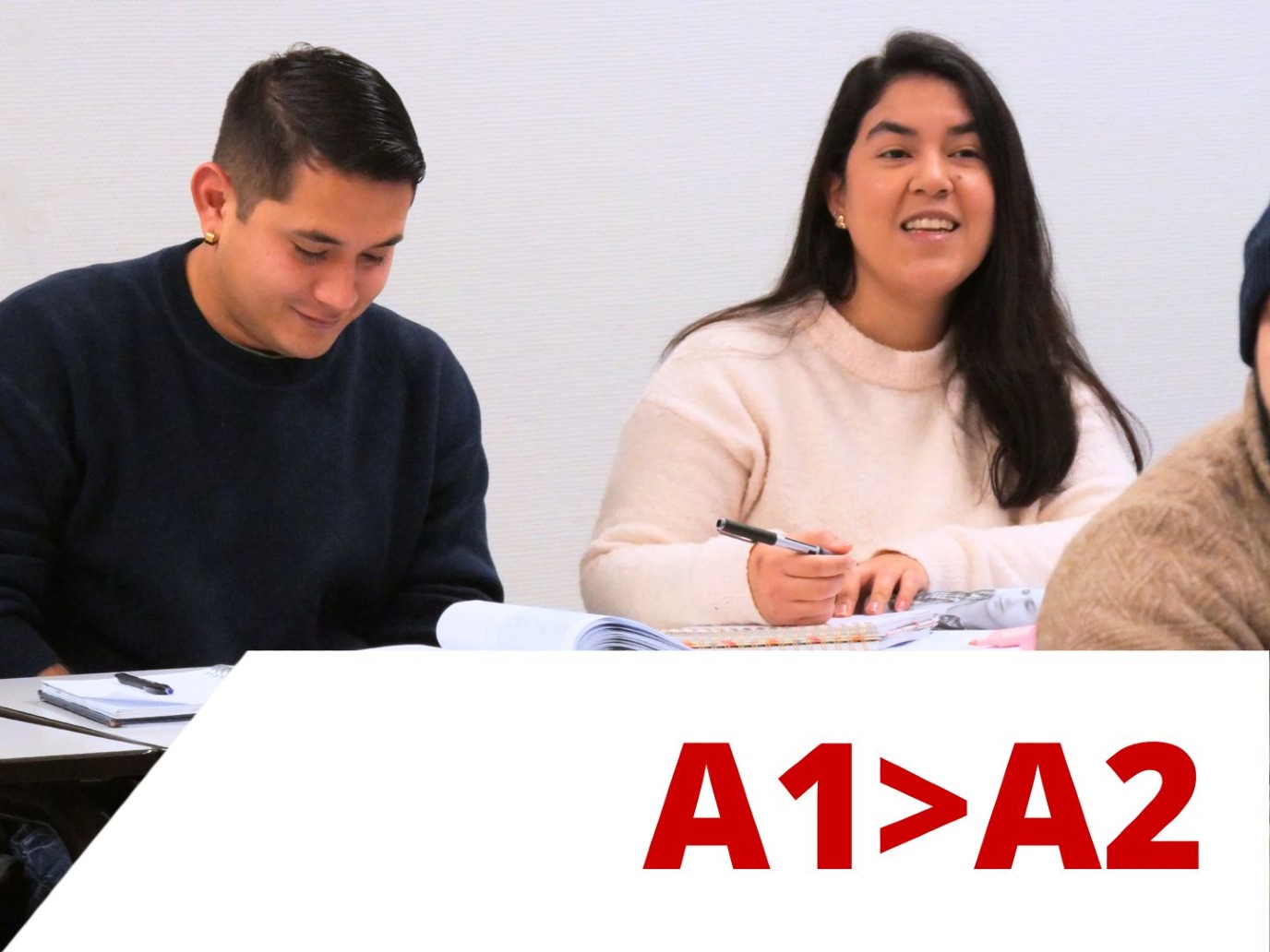
Level: elementary
Start dates: Sept, Jan, Apr
Register
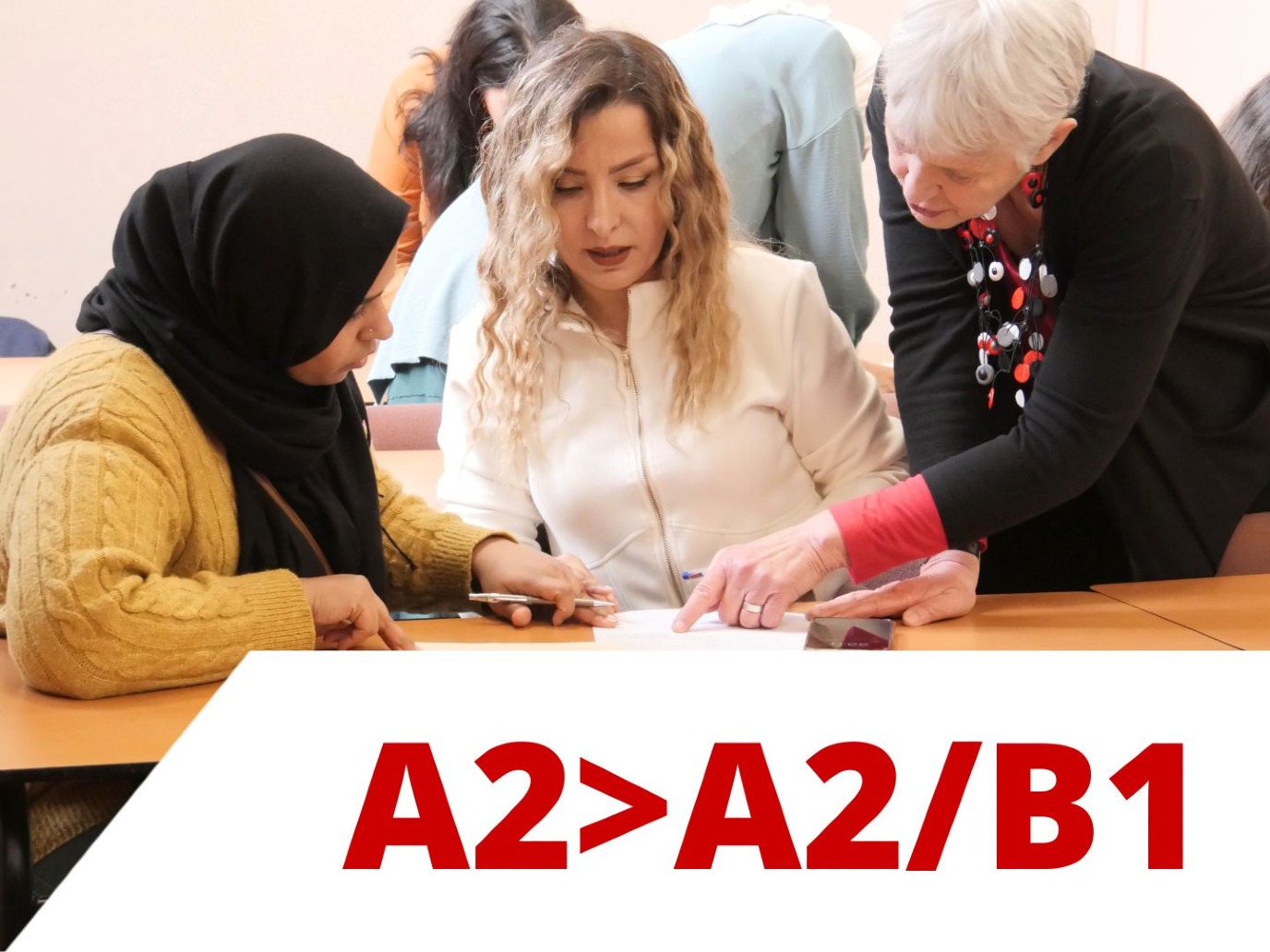
Level: pre-intermediate
Start dates: Sept, Jan, Apr
Register
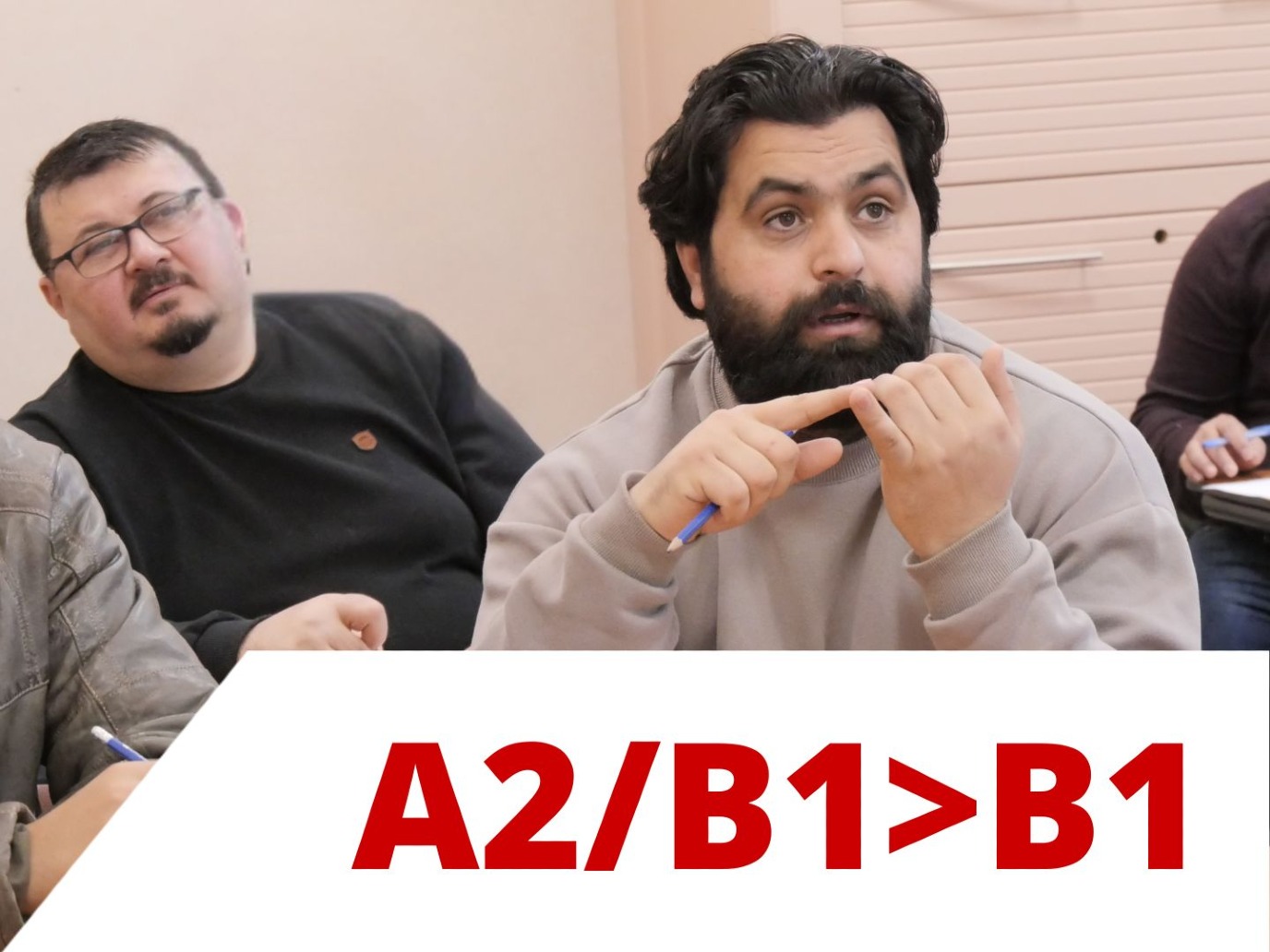
Level: pre-intermediate
Start dates: Sept, Jan, Apr
Register

Level: intermediate
Start dates: Sept, Jan, May
Register
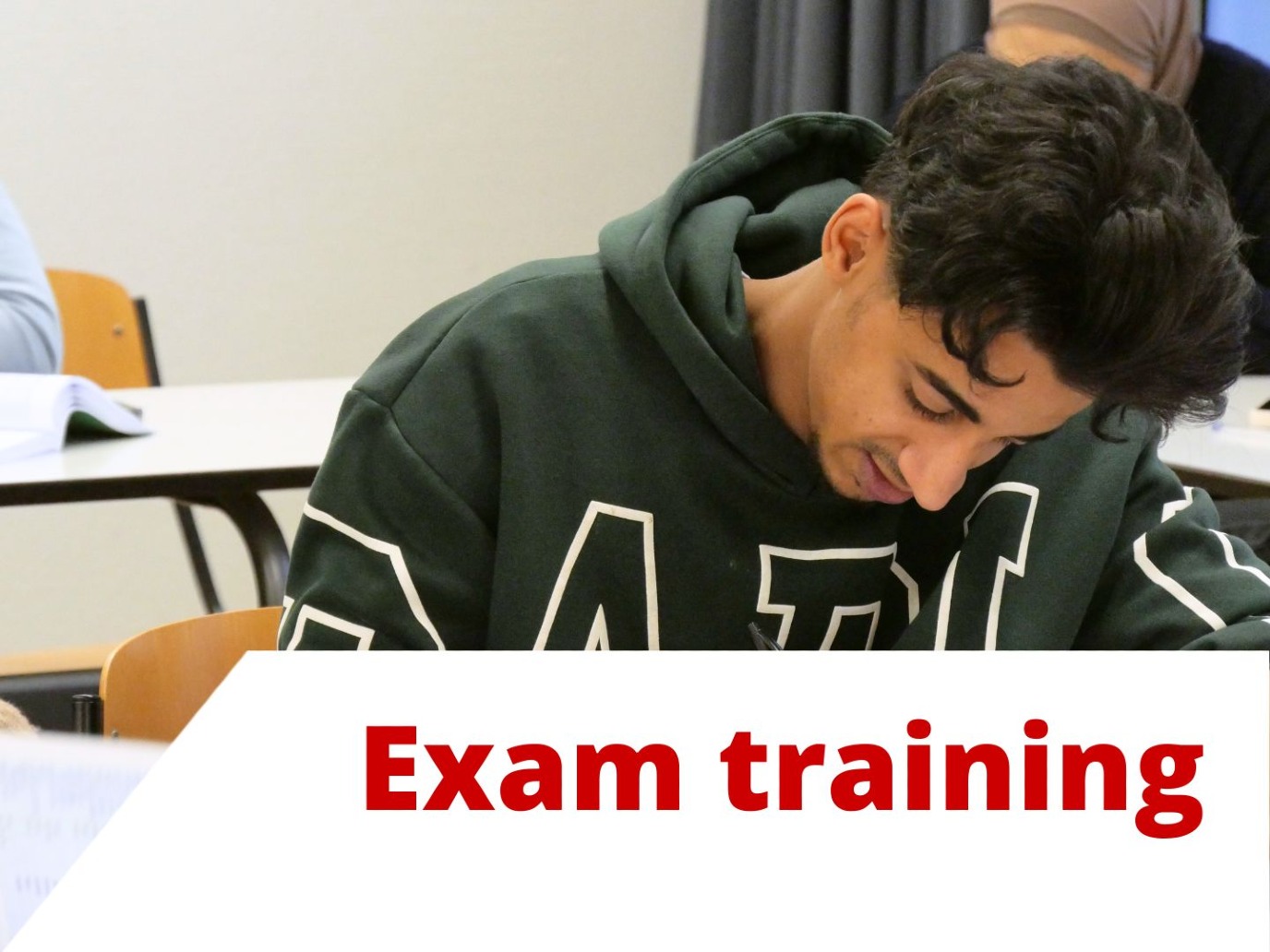
Level: NT2-I (B1) and NT2-II (B2)
Start dates: Sept, Feb, May
Register

Level: upper-intermediate
Request
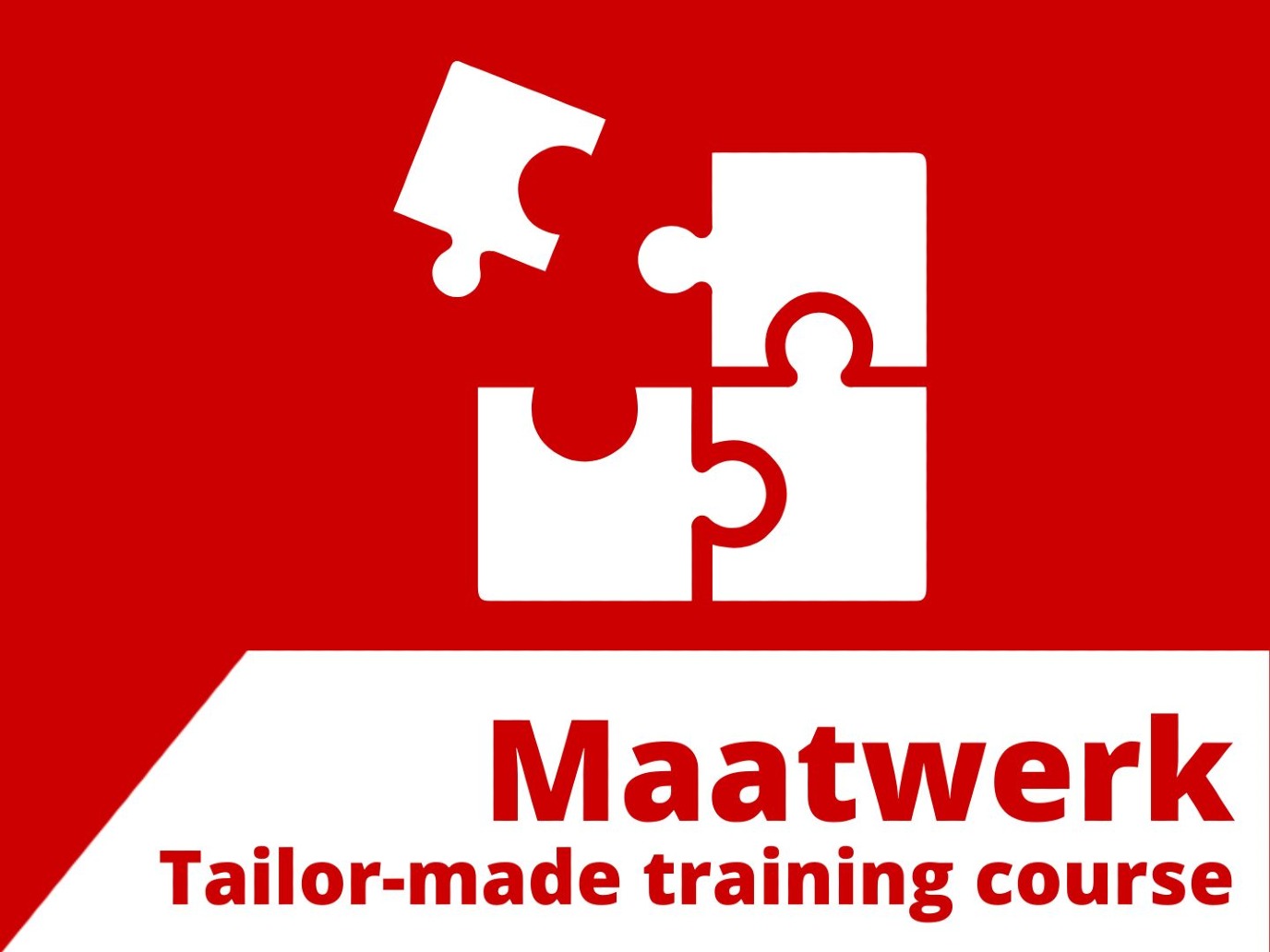
Would you like us to design your own training course?
Plan an intake meeting
How to register with a DUO loan
How to register and pay with a loan from the Education Executive Agency (DUO)
You can pay for Dutch courses at the University of Groningen Language Centre in preparation for the State Examination in Dutch as a Second Language (level B2) or Staatsexamen NT2 with a loan from the Education Executive Agency (DUO).
You should register as follows:
-
Visit en.inburgeren.nl for more information about integration.
-
Request a loan from DUO. Log in to My Integration on the internet. You will need DigiD to get access to government websites. Online requests are processed much faster than paper form requests.
-
When you register for your Language Centre course, you upload a photocopy or scan of the letter in which DUO approves your loan. For all future courses that you register for, you must upload the most recent overview of your DUO grant.
-
Go to our overview of Dutch courses
-
Have you not followed a course at the Language Centre in the past year? Please check which intake procedure applies to you.
-
Did you receive a positive advice? You may register for a course online. As payment method, select ‘DUO loan for integration via the State Examination in Dutch as a Second Language (level B2) or Staatsexamen NT2 '.
-
You will be sent more information about the course by e-mail one week before the course is due to begin.
-
Before the start of the course, you will receive a digital course contract which you must sign a week before the start of the course. This contract states the conditions applying to your course schedule, in line with the criteria of Blik op Werk. If the contract has not been signed on time, you will not be able to participate in the course.
-
After the course your DUO invoice will be sent to your DUO-account, you need to approve this invoice in your account. Both DUO and the Language Centre will inform you on this.
Important
-
The Language Centre satisfies the Blik op Werk quality standard. This means that course participants who are obliged to participate in a civic integration programme can use their loan from the Education Executive Agency (DUO) to pay for their Dutch language course. The obligation to participate in a civic integration programme applies to all course participants who have not yet gained their civic integration certificate or passed the State Examination in Dutch as a Second Language.
If you have already passed the Inburgering A2 course or the State Examination for Programme I (B1) or II (B2), you no longer have this obligation and are thus not permitted to use a DUO loan for a course. If you want to use your DUO loan for a course, you should therefore not take any exams until after you have completed the course.
-
A DUO loan allows you to take 2 courses per quarter for a maximum of €2,000. We will charge DUO for the total amount at the end of the course. Make sure there is enough money available from your quarterly limit of €2,000 at that time. If there is not enough money available, then you will have to pay the full amount yourself.
How to register for a course with financial aid from your municipality
How to register for a course with financial aid from your municipality
You can pay for a Dutch course at the Language Centre in preparation for the civic integration examination or the State Examination in Dutch as a Second Language with help from your local municipality. This is only possible if you fall under the scope of the Civic Integration Act 2021 (Wi2021), if you have a Civic Integration and Participation Plan (PIP, Plan Inburgering en Participatie) which states that you follow the B1 path, and if you have been given permission by your contact person at the municipality to take part in a course at the Language Centre. The Language Centre is not allowed to accept participants from the Educational path.
The registration consists of the following steps:
-
Visit the website www.inburgeren.nl/en for more information about the integration process.
-
Go to the top of this page for information about the intake.
-
Did you get the recommendation to take a course at the Language Centre? Ask your municipality to send an email to talencentrum rug.nl stating that they will pay for the course. This email should include:
- Your name
- Your email address
- The name of your municipality
- Which learning path you’re following (this should be the B1 path, the Educational path is not an option at the Language Centre)
- Your civic integration candidacy type: asylee, family migrant (someone living with their Dutch partner), or someone who voluntarily chooses to follow the civic integration process
-
As soon as we have processed the above information from your municipality, you will receive an email. You can then register for a course. When you register, please indicate that you will be taking the course as part of your civic integration process and fill in the form. Choose your municipality as the payment option.
-
Once you have registered, please email your full PIP to talencentrum@rug.nl.
-
If your municipality is no longer able to cover the cost of your courses with us, the municipality has to notify us about this. We will then discontinue the option of taking courses at the municipality's expense.
Note: Civic integration candidates who are not asylum status holders will receive a digital contract ahead of the course, which should be signed at least one week before the start of the course. This contract details the conditions of the course, which have been drafted according to the demands of the Blik op Werk quality standard. If the contract has not been signed on time, you will not be able to participate in the course.
More information about the course will be sent to you via email in the week before the course starts. Your municipality will receive our invoice shortly after the start of the course.
Useful links about civic integration in the Netherlands
-
Integration in the Netherlands – Dutch government integration website
-
Civic Integration Act 2021 - information from the government on the three new learning pathways for civic integration
-
Board of Examinations – about the Dutch State Exam NT2
-
Pathfinder for refugee students - Different procedures apply for refugee students. Use our Pathfinder tool to find out what you need to do in your situation.
-
International Welcome Center North (IWCN) – a one-stop shop for international people living in Groningen, Friesland and Drenthe.
-
The Foundation for Refugee Students – UAF - assists refugees in continuing their higher education and in finding a job that dovetails with their capabilities.
-
New in the Netherlands – Dutch government immigration website
-
Net in Nederland – online platform for newcomers
Are you looking for a Dutch course with a specific focus on speaking or writing, or for courses that are suitable for a different target group?
Develop your language skills
Besides taking a course, you can also develop your Dutch language skills yourself with one of the following options!

Get to know the Dutch language and culture and the city of Groningen in this 3-week online course.
Register
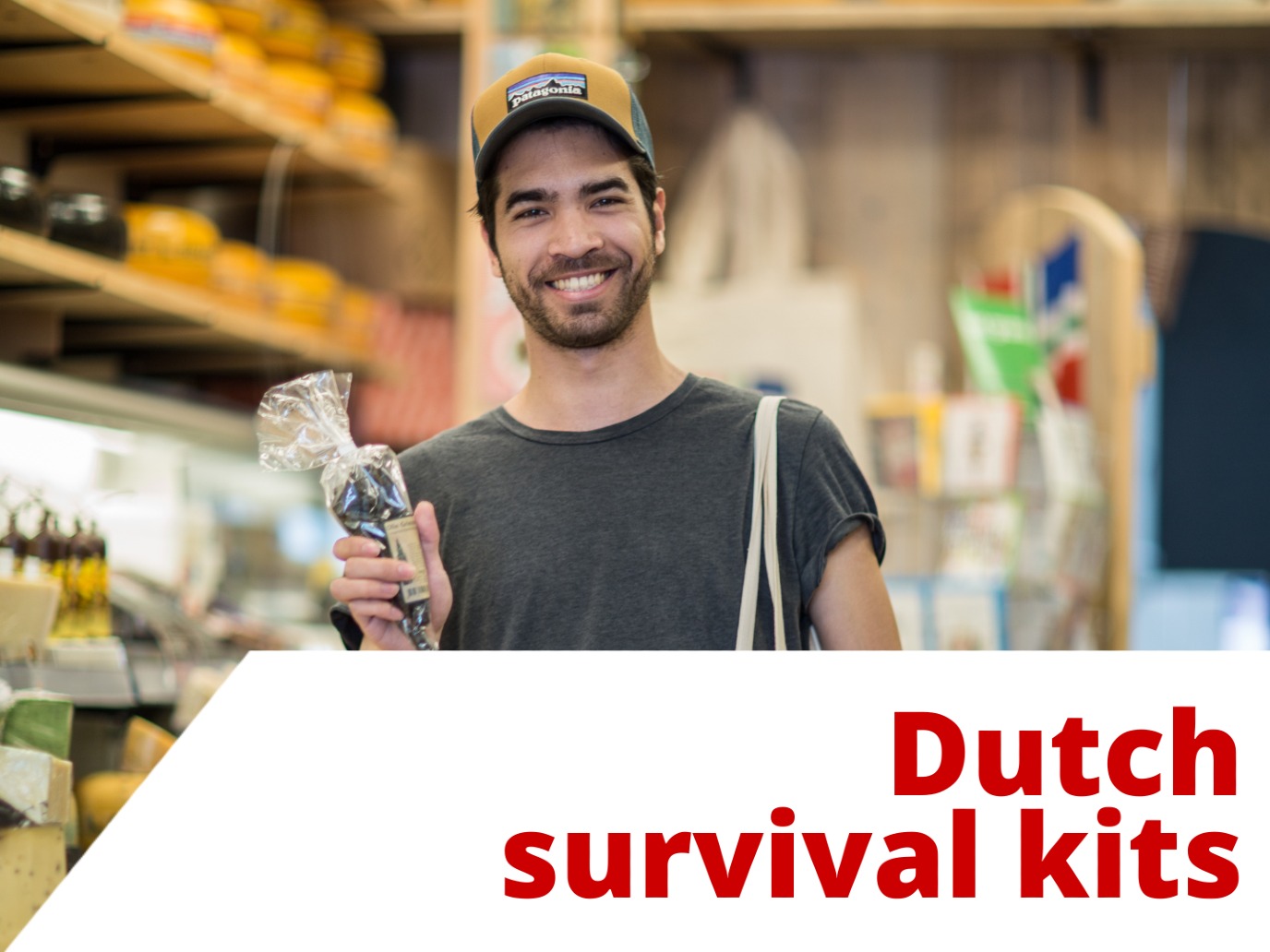
With our Dutch Survival Kit and online self-study sets , you will practise with commonly used words and phrases in everyday life.
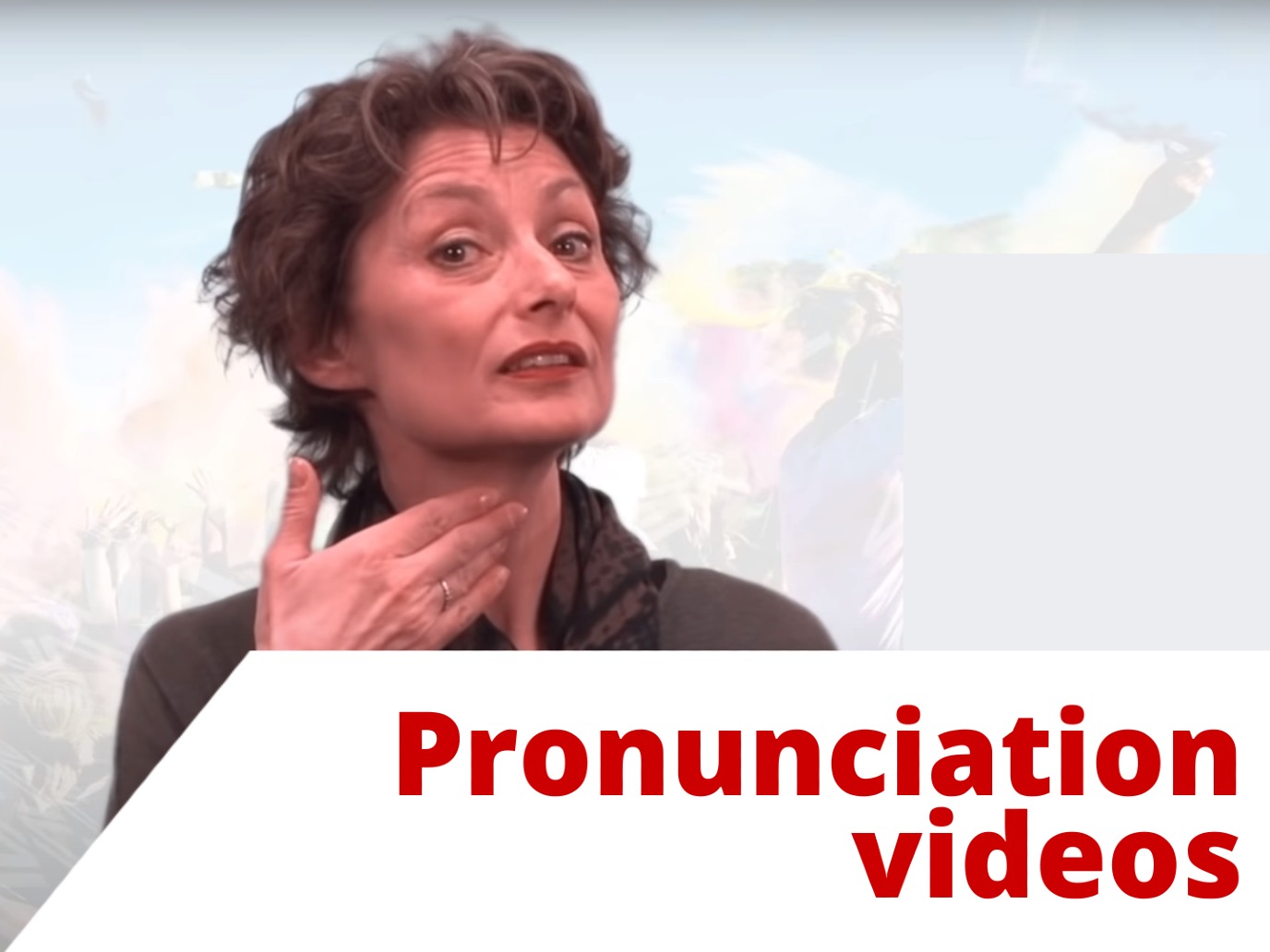
This Youtube playlist focuses on 20 sounds. For each sound you will find videos with explanations and practice videos.
Improve your pronunciation
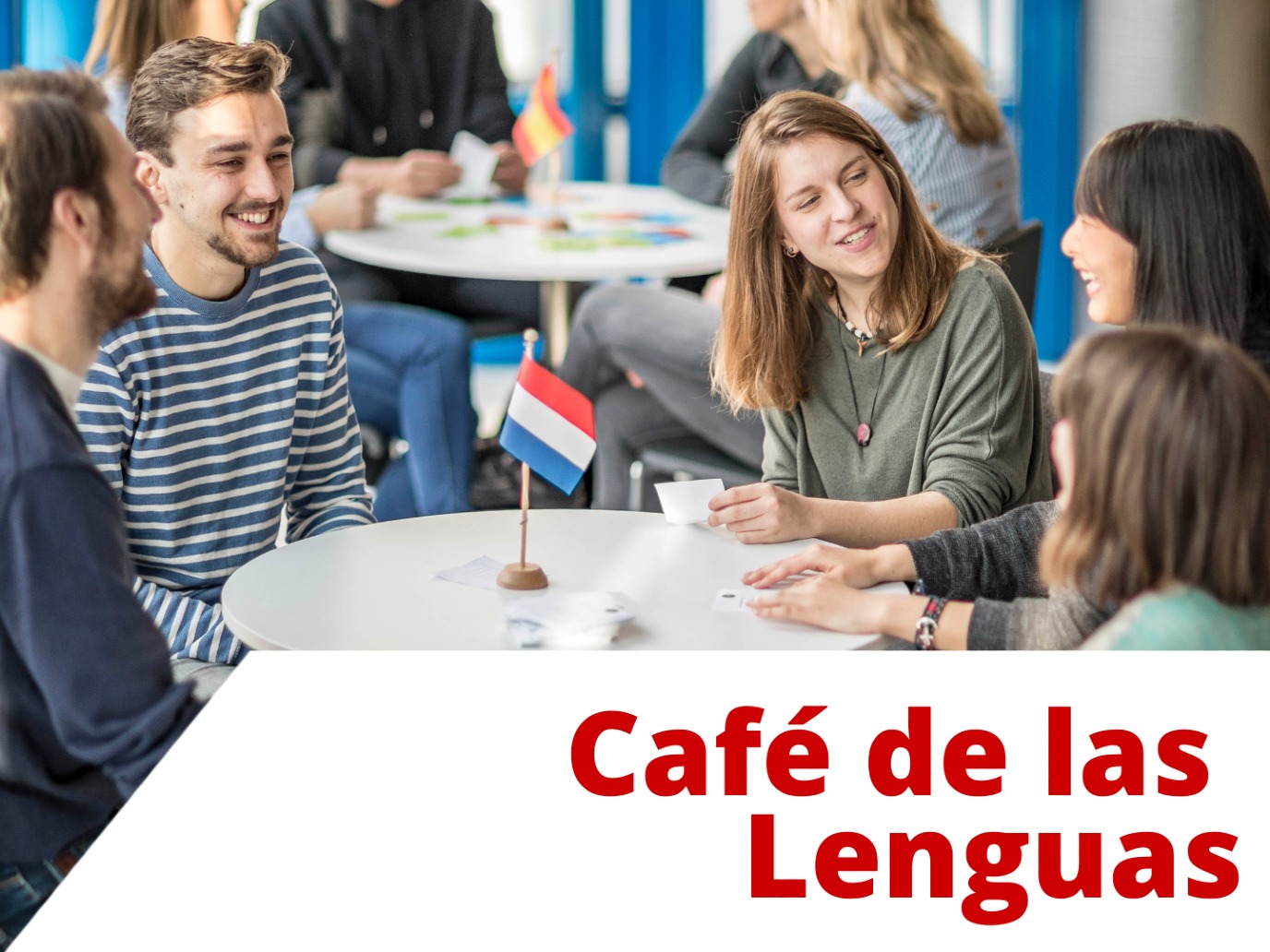
Practise your speaking skills every Thursday evening in our language café.
Find out more

